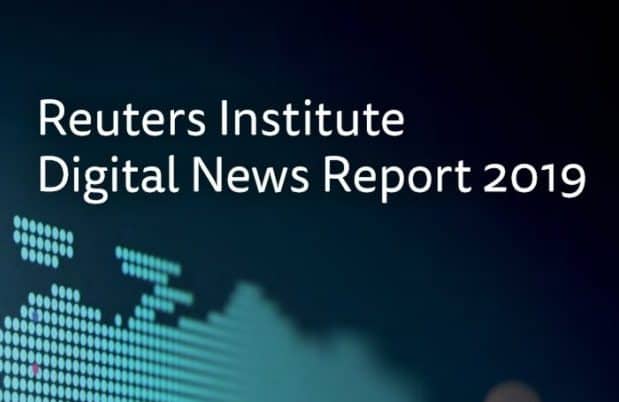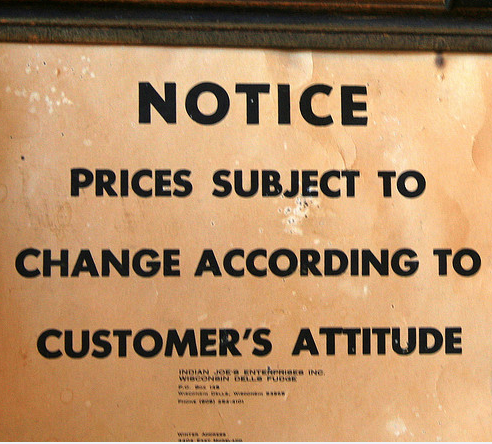
Digital News Report 2019: based on a YouGov survey of 75,000 people in 38 countries
This year’s Digital News Report focuses on themes that are of crucial importance for the future of journalism and the media: the impact of populism, the role played by the big tech platforms and their efforts to build public trust in information available online, and the evolution of online business models. It also looks at the shift to private messaging apps and the rise of podcasts – among many other topics.
The report, which was launched last week by the Reuters Institute for the Study of Journalism, contains new insights about digital news consumption based on a YouGov survey of over 75,000 online news consumers in 38 countries and six continents. It remains the most authoritative study of its kind.
In his Executive Summary, lead author Nic Newman notes that the 2019 report “comes against the backdrop of rising populism, political and economic instability, along with intensifying concerns about giant tech companies and their impact on society.”
Newman says that while news organisations have taken the lead in reporting these trends, they have also been challenged by them, with the result that an industry reeling from more than a decade of digital disruption has been further depressed.
Platform power – and the ruthless efficiency of the platforms’ advertising operations – has undermined news business models, contributing to a series of recent high-profile layoffs in traditional (Gannett) and digital media (Mic, BuzzFeed).
According to Newman, “political polarisation has encouraged the growth of partisan agendas online, which together with clickbait and various forms of misinformation is helping to further undermine trust in media – raising new questions about how to deliver balanced and fair reporting in the digital age.”
Against this background of continuing instability, the report identifies some real shifts of focus.
- News organisations are increasingly looking to subscription and membership or other forms of reader contribution to pay the bills in what has become known as the “pivot to paid”.
- Platforms are rethinking their responsibilities in the face of events (Christchurch attacks, Molly Russell suicide) and regulatory threats, with Facebook rebalancing its business towards messaging apps and groups – the so-called ‘pivot to private’.
- Audiences continue to embrace on-demand formats with new excitement around podcasts (New York Times, Guardian) and voice technologies – the so-called ‘pivot to audio’.
Public trust in news media
Amid all this frenetic change, the report notes that some are beginning to question whether the news media are still fulfilling their basic mission of holding powerful people to account and helping audiences understand the world around them.
This questioning takes the form of government inquiries in some countries into the sustainability of quality journalism. But it also comes from parts of the public who feel that the news media often fall short of what people expect from them.
Major upheavals such as th e Yellow Vests protests in France or Brexit in the UK have put a strain on the perceived impartiality of the news media, which in turn can affect trust.
e Yellow Vests protests in France or Brexit in the UK have put a strain on the perceived impartiality of the news media, which in turn can affect trust.
Connected with the issue of trust and doubts over the quality and credibility of information sources, research into news consumption habits carried out for the report revealed that news avoidance is a growing phenomenon.
More people now say they actively avoid the news (32%) than when the same question was asked two years ago. Avoidance is up 6 percentage points overall and 11 points in the UK, driven by boredom, anger, or sadness over Brexit. People say they avoid the news because it has a negative effect on their mood (58%) or because they feel powerless to change events.
Other important findings to emerge from research carried out for the 2019 report include:
- Despite the efforts of the news industry, there has been only a small increase in the numbers paying for any online news – whether by subscription, membership, or donation. Growth is limited to a handful of countries mainly in the Nordic region (Norway 34%, Sweden 27%).
- Even in countries with higher levels of payment, the vast majority only have ONE online subscription.
- In some countries, subscription fatigue may also be setting in, with the majority preferring to spend their limited budget on entertainment (Netflix/Spotify) rather than news.
- In many countries, people are spending less time with Facebook and more time with WhatsApp and Instagram than this time last year. Few users are abandoning Facebook entirely, though, and it remains by far the most important social network for news.
- Social communication around news is becoming more private as messaging apps continue to grow everywhere. WhatsApp has become a primary network for discussing and sharing news in non-Western countries such as Brazil (53%) Malaysia (50%), and South Africa (49%).
- People in these countries are also far more likely than in the West to be part of large WhatsApp groups with people they don’t know – a trend that reflects how messaging applications can be used to easily share information at scale, potentially encouraging the spread of misinformation.
- Concern about misinformation and disinformation remains high despite efforts by platforms and publishers to build public confidence.
- Across all countries, the average level of trust in the news in general is down 2 percentage points to 42%. Less than half (49%) agree that they trust the news media they themselves use (see graphic above).
Further details on these developments – and much more – can be found in the complete 2019 report, which can be downloaded from the Digital News Report website here.
You may also be interested in NewsGuard’s “news trust” ratings rolled out to Europe
Sign up for the EJO’s regular monthly newsletter or follow us on Facebook and Twitter.
Tags: digital news, Facebook, messaging apps, news avoidance, News consumption, Podcasting, populism, Reuters Institute Digital News Report, subscription models, tech platforms, Trust in News, voice technologies, WhapsApp














































